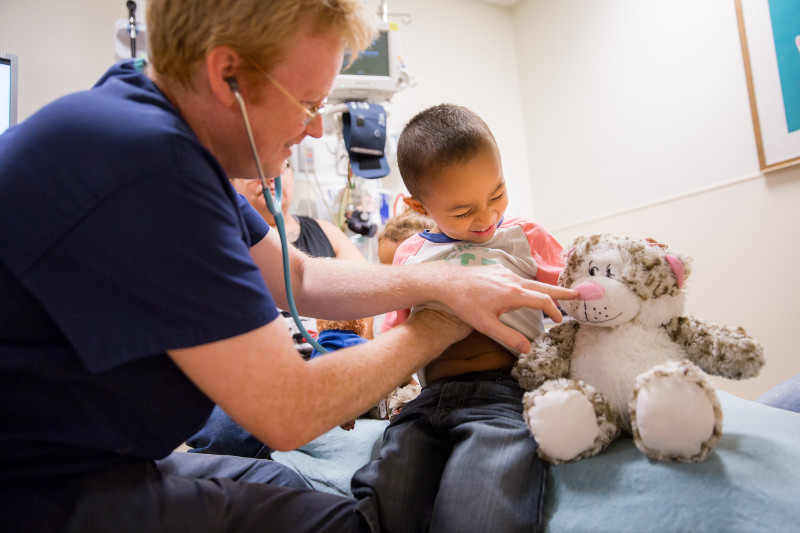By Emma Dugas, Vitals contributor
Every day brings new scientific insights into COVID-19 and the coronavirus that causes it. Studies authored by Sutter Health experts examine the virus’s impact on children and diabetic adults.
COVID-19 and Kawasaki Disease
Recently, doctors began warning of a potential consequence of COVID-19 infection in children; some youngsters appear to develop an abnormal immune response that results in symptoms commonly associated with Kawasaki disease or toxic shock syndrome – two rare, but well-characterized inflammatory conditions. The first known U.S. case of Kawasaki disease possibly connected to COVID-19 was reported by Veena Jones, M.D., (lead author) and Dominique Suarez, M.D., both pediatric hospitalists with the Palo Alto Medical Foundation, part of the Sutter Medical Network.

Their six-month-old patient was diagnosed with classic Kawasaki disease, admitted to the hospital for treatment, and subsequently received a positive test result for COVID-19. The main reason for treatment in children with Kawasaki disease is to prevent further complications of the disease on the heart. The patient received appropriate treatment and has since fully recovered and has maintained normal heart function. But the case caused the doctors to question: could the COVID-19 infection have led the patient to develop Kawasaki disease?
“Our patient met the classic criteria for Kawasaki disease, so there was little doubt about the diagnosis or treatment plan,” said Dr. Jones. “But we do wonder if the COVID-19 infection could have caused the Kawasaki disease, especially because Kawasaki disease is widely thought to be triggered by an infection or an abnormal immune response to an infection.”

A careful review of the existing medical literature found that COVID-19 co-occurring with Kawasaki disease had not previously been reported, so the doctors decided to write up the case and submit it to the Journal of Hospital Pediatrics for publication. “Researchers still know very little about exactly why Kawasaki disease develops in some patients, so our hope was to accurately describe the novel case that we encountered and share that with the medical community to encourage further investigation and dialogue,” said Jones. In the race to understand the burden of COVID-19 on the human body this kind of early observation by doctors on the frontline can help inform future decisions around diagnosis and treatment.
COVID-19 and Diabetes
Since the start of the coronavirus pandemic many have warned that people with existing chronic illness who contracted the infection would become sicker than those without. Now, research authored by Sutter Health clinician David Klonoff, M.D. suggests that diabetes, one of the most serious chronic illnesses in the world, is strongly correlated with death among hospitalized patients diagnosed with COVID-19.

Accepted by the Journal of Diabetes Science and Technology, Dr. Klonoff’s paper represents the largest study yet reported on outcomes of patients with COVID-19 and diabetes or uncontrolled hyperglycemia. The observational study of 1122 inpatients with COVID-19 at US hospitals between March 1 and April 6, 2020, found that those with diabetes or hyperglycemia throughout their hospital stay had a four-fold greater inpatient mortality than those without diabetes or hyperglycemia. In a further subset analysis, death rates were seven-fold greater among those who did not have evidence of diabetes prior to admission, but developed hyperglycemia during their hospitalization.
The study also demonstrated that during a hospitalization for COVID-19, the presence of diabetes or hyperglycemia was associated with a longer hospital stay and slightly worse kidney function.
“I am now analyzing the same database to determine whether COVID-19 patients with diabetes and uncontrolled hyperglycemia, who were better controlled in the hospital, had better outcomes,” said Klonoff. If an association between greater survival and achieving target glycemia (following initial hyperglycemia) is demonstrated, and acted on, lives could be saved.
“These data may have wide implications for how we care for COVID-19 positive patients who experience hyperglycemia during their hospital stay or who have already been diagnosed with diabetes.”





